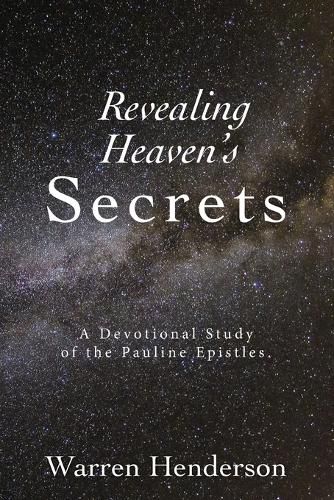Readings Newsletter
Become a Readings Member to make your shopping experience even easier.
Sign in or sign up for free!
You’re not far away from qualifying for FREE standard shipping within Australia
You’ve qualified for FREE standard shipping within Australia
The cart is loading…






Paul quotes Isaiah, "Who can know the mind of the Lord that He may instruct Him?" to explain that God and His ways cannot be known by man without receiving divine revelation and illumination. Paul was assigned the special ministry of revealing the hidden mysteries of God being accomplished in Christ (1 Cor. 4:1). If Satan had understood what God was going to achieve through Christ's death and resurrection, Satan would not have had Jesus Christ crucified (1 Cor. 2:7-8). So, God kept His plan of salvation a mystery until after Christ's work of redemption and His resurrection were complete. Then through Paul and the other apostles, God revealed what had been previously concealed so that all may "see what is the fellowship of the mystery" obtained in Christ. Paul is credited with writing thirteen of the New Testament epistles. He may have written Hebrews also. Paul's writing style is logical in construction and draws precedents from Old Testament Scripture to establish and defend New Testament doctrine. The Pauline epistles provide the doctrinal basis to compel believers to live for Christ. Paul generally uses identification truth (i.e., the believer's position with Christ) to implore Christians to practically live for Christ.
$9.00 standard shipping within Australia
FREE standard shipping within Australia for orders over $100.00
Express & International shipping calculated at checkout
Paul quotes Isaiah, "Who can know the mind of the Lord that He may instruct Him?" to explain that God and His ways cannot be known by man without receiving divine revelation and illumination. Paul was assigned the special ministry of revealing the hidden mysteries of God being accomplished in Christ (1 Cor. 4:1). If Satan had understood what God was going to achieve through Christ's death and resurrection, Satan would not have had Jesus Christ crucified (1 Cor. 2:7-8). So, God kept His plan of salvation a mystery until after Christ's work of redemption and His resurrection were complete. Then through Paul and the other apostles, God revealed what had been previously concealed so that all may "see what is the fellowship of the mystery" obtained in Christ. Paul is credited with writing thirteen of the New Testament epistles. He may have written Hebrews also. Paul's writing style is logical in construction and draws precedents from Old Testament Scripture to establish and defend New Testament doctrine. The Pauline epistles provide the doctrinal basis to compel believers to live for Christ. Paul generally uses identification truth (i.e., the believer's position with Christ) to implore Christians to practically live for Christ.